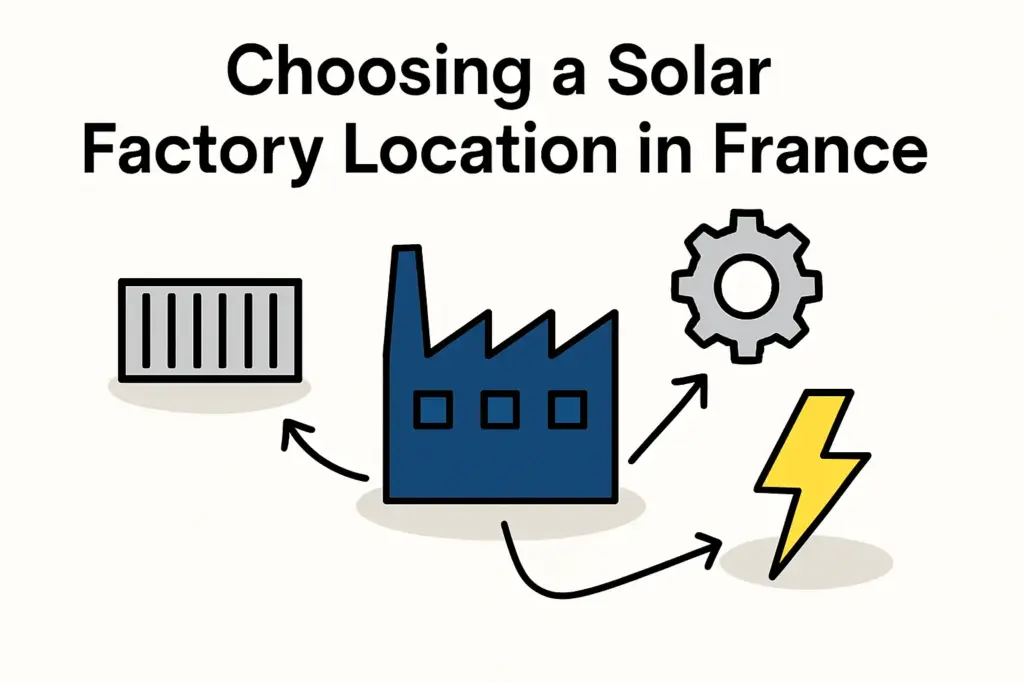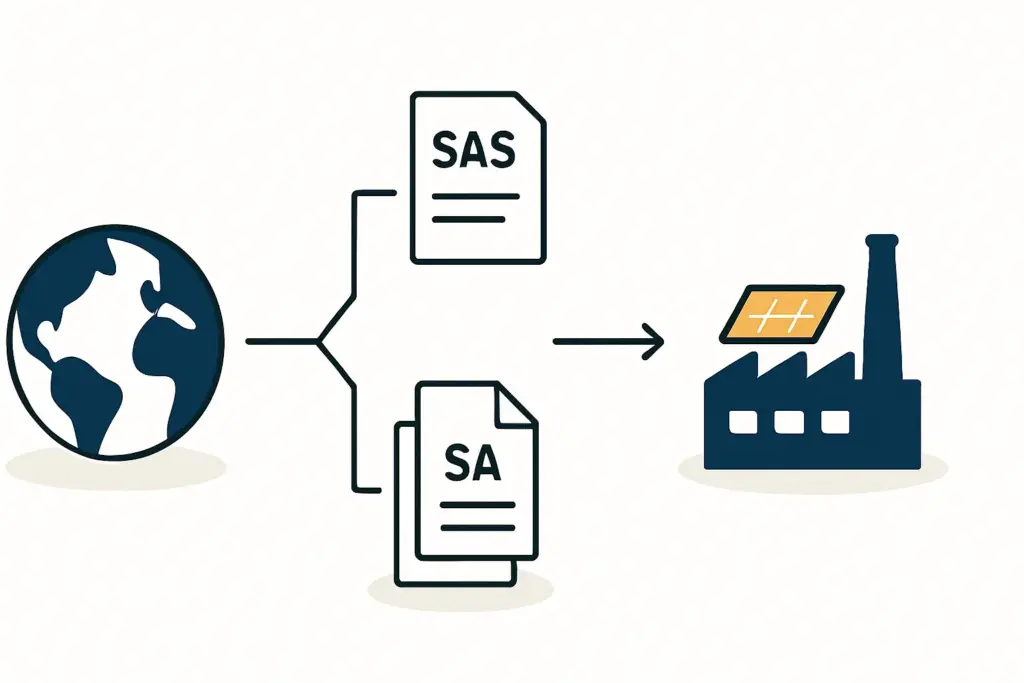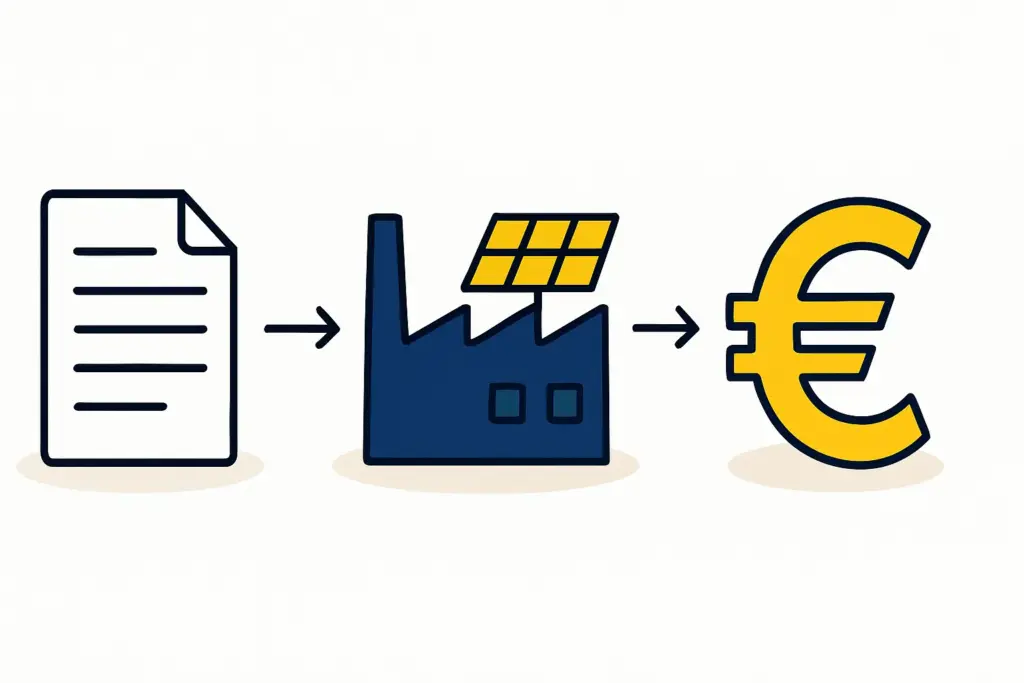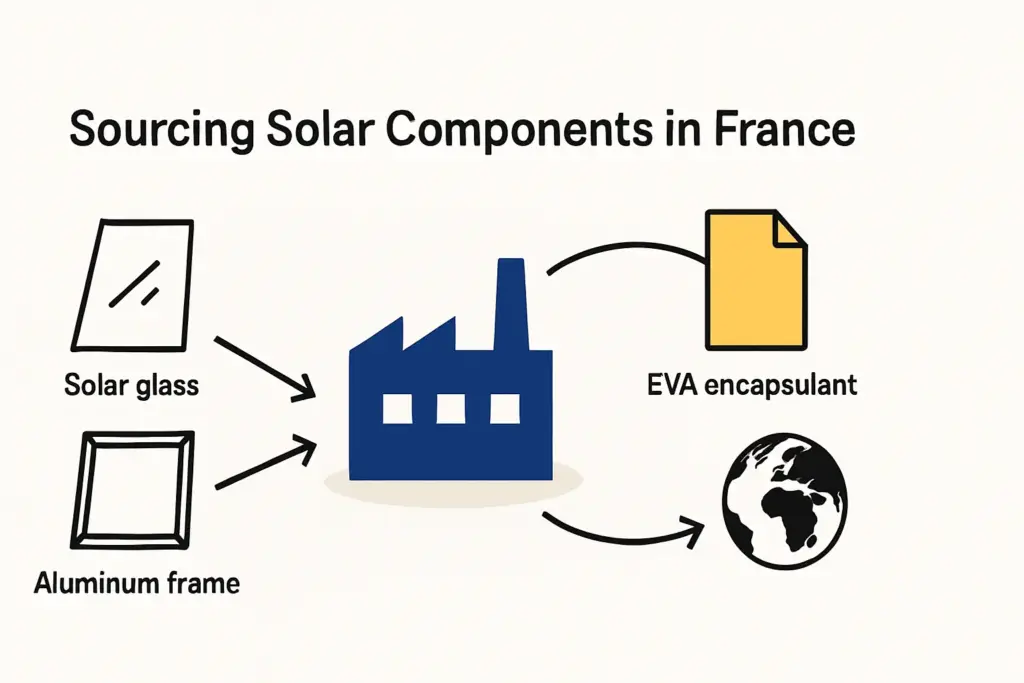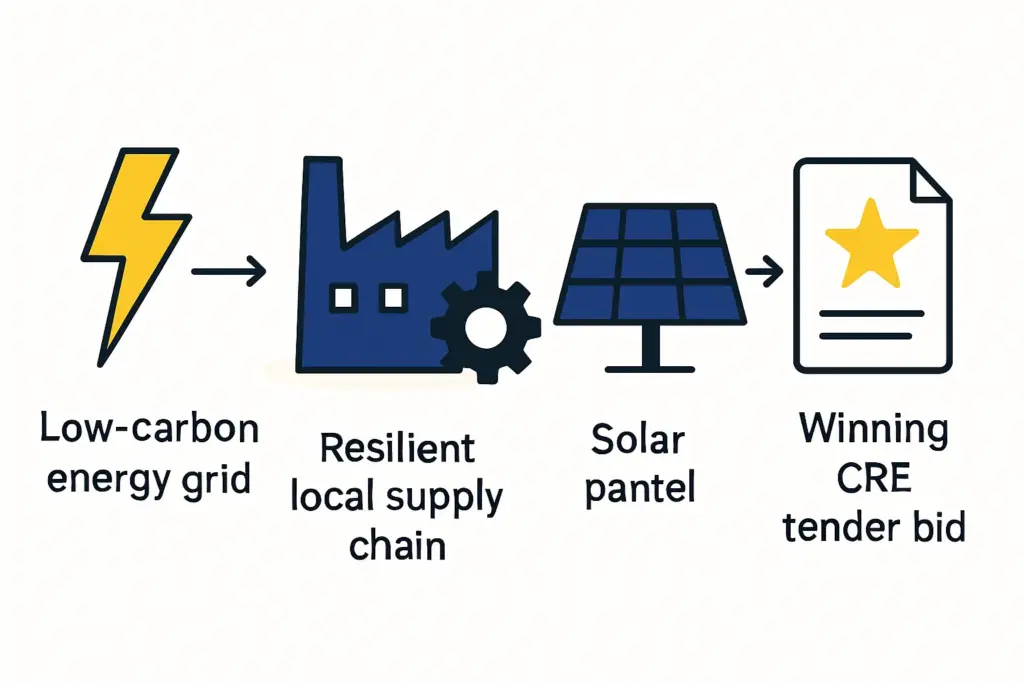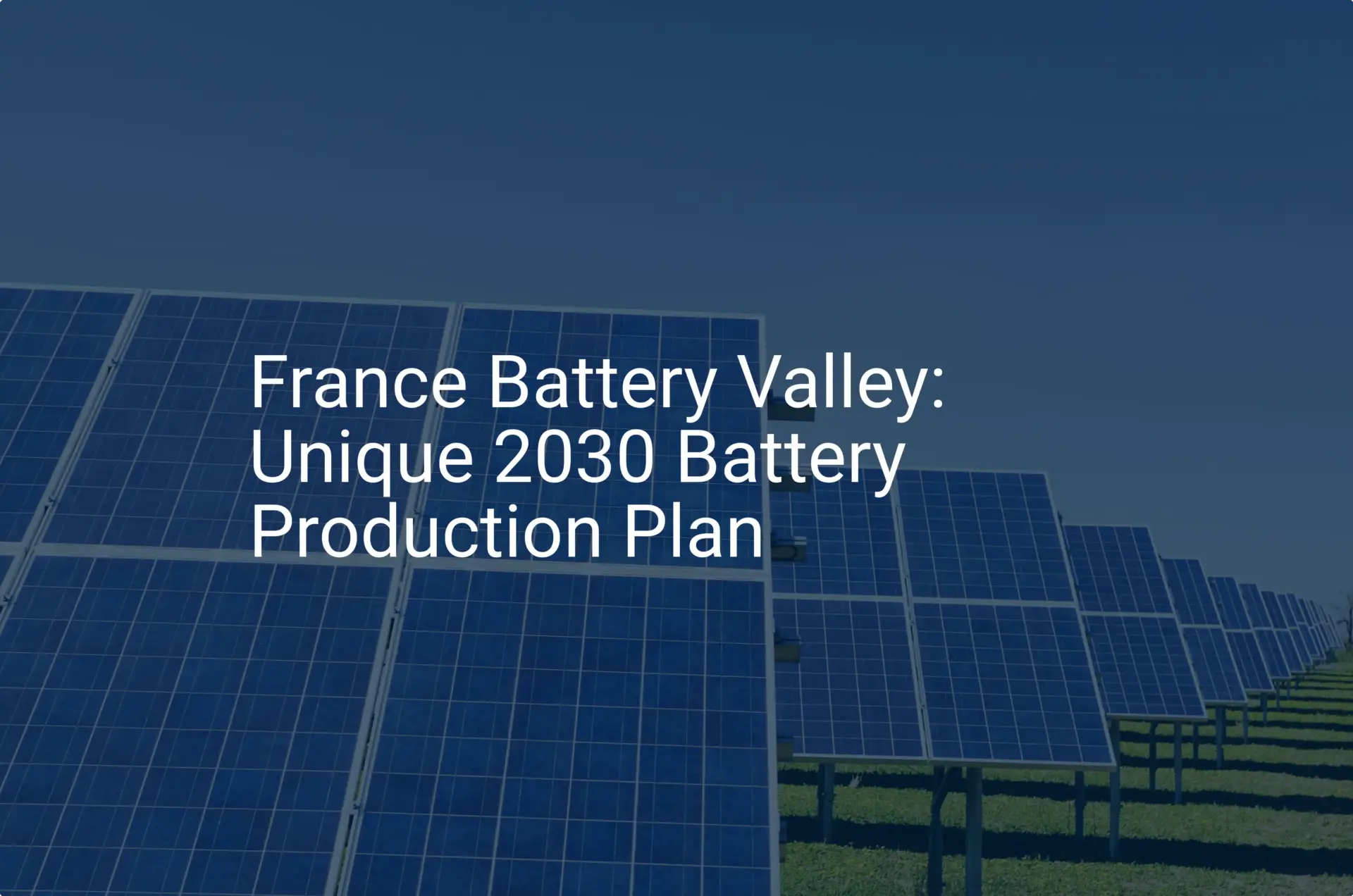Discover comprehensive insights into the statistics, market trends, and growth potential surrounding the solar panel manufacturing industry in France
- https://renewablemarketwatch.com/news-analysis/368-france-surpassed-10-gw-cumulative-installed-solar-photovoltaic-capacity-in-2020 – Renewable market watch “France surpassed 10 GW cumulative installed solar photovoltaic capacity 2020” Retrieved June 17, 2024.
- https://globalsolaratlas.info/detail?c=46.422713,2.197266,5&r=FRA – Global Solar Atlas “France” Retrieved June 17, 2024.
- https://www.globalpetrolprices.com/France/electricity_prices/ – Global petrol Price “France electricity Prices” Retrieved June 17, 2024.
- https://www.drax.com/power-generation/what-makes-a-countrys-electricity-system-stable/ – Drax “what makes a country’s electricity system stable” 29th December, 2019. Retrieved June 17, 2024.
- https://www.world-energy.org/article/40687.html – World Energy “France reaches 20 GW of photovoltaic” march 5 2024. Retrieved June 17, 2024.
- https://www.pv-tech.org/france-targets-up-to-60gw-of-solar-pv-by-2030-in-updated-necp/ – PVTECH “France targets up to 60 GW of solar PV by 2030 in updated NECP”. Retrieved June 17, 2024.
- https://www.switchcoal.org/en/countries/france – Switch Coal “Coal plants in France”. Retrieved June 17, 2024
- https://www.statista.com/statistics/1357832/households-natural-gas-price-breakdown-france/ – Statista “Breakdown of average natural gas bill for households in France in 2020 and 2021, by component” released October 22nd Retrieved June 17, 2024.
- https://www.euractiv.com/section/energy-environment/news/nucleaire-comment-definir-le-cout-des-futurs-reacteurs-en-europe/ – Euractiv “The cost of Europe’s new nuclear power plant” Retrieved June 17, 2024.
- https://www.statista.com/statistics/1370685/cost-of-renewable-electricity-production-by-technology-france/ – Statista “Cost of electricity production from renewable sources in France as of 2022, by technology” released march 2023. Retrieved June 17, 2024.
- https://www3.eia.gov/international/content/analysis/countries_short/France/pdf/france_2023.pdf – country analysis brief: France. Retrieved June 18, 2024
- https://www.statista.com/statistics/1263322/electrical-production-by-sector-france/ – Statista “Distribution of electricity production in France from 2021 to 2023, by energy source” released February 2024, Retrieved June 17, 2024.
- https://analysesetdonnees.rte-france.com/en/generation/global – Electricity Analysis and data “Generation” Retrieved June 17, 2024.
- https://www.leparisien.fr/societe/energie-solaire-forte-hausse-de-lautoconsommation-delectricite-chez-les-particuliers-en-france-25-08-2023-B2OWCU4GSVBP5KCJKEF7YCEUJY.php – le Parisien “solar energy: sharp increase in self-consumption of electricity among individuals in France” Retrieved June 17, 2024.
- https://www.gem.wiki/Category:Solar_farms_in_France – Global energy monitor wiki “Solar farms in France”. Retrieved June 17, 2024.
- https://www.grandviewresearch.com/industry-analysis/europe-residential-solar-pv-panels-market-report – Grand View Research “Europe residential solar panels market size”. Retrieved June 17, 2024.
- https://www.mordorintelligence.com/industry-reports/france-solar-energy-market/market-size – Mordor intelligence “France Solar Energy Market Size”. Retrieved June 17, 2024.
- https://www.glassdoor.com/Salaries/france-solar-engineer-salary-SRCH_IL.0,6_IN86_KO7,21.htm – Glassdoor “how much does a solar engineer make in France” updated April 3rd 2023. Retrieved June 19, 2024.
- https://www.statista.com/topics/5677/demography-in-france/#topicOverview – Statista “Demographics in France”. Retrieved June 17, 2024.
- https://www.statista.com/statistics/527840/warehouse-primary-rent-cost-logistics-market-france-europe/ – Statista “Annual prime headline rent for warehouses over 5,000 square meters in the occupier logistics market in France from 2014 to 2023, by city” released February 2024. Retrieved June 17, 2024.
- https://en.parisrental.com/blog/essential-rental-info/how-much-does-electricity-cost-in-paris-in-2023 – Paris rental “how much does electricity cost in Paris 2023” posted July 19, 2023. Retrieved June 17, 2024.
- https://koronapay.com/transfers/europe/en/blog/how-much-do-people-earn-in-france-1/ -Koronapay “how much do people earn in France” Retrieved June 20, 2024.
- https://www.ceicdata.com/en/indicator/france/electricity-production – CEIC “France electricity production” Retrieved June 20, 2024.
- https://en.m.wikipedia.org/wiki/List_of_power_stations_in_France – Wikipedia “List of power stations in France” Retrieved June 20, 2024
- https://iclg.com/practice-areas/renewable-energy-laws-and-regulations/france – ICLG “Renewable energy laws and regulation France 2024” Retrieved June 20, 2024
- https://www.statista.com/statistics/1453205/wind-energy-capacity-by-status-france/ – Statista “Capacity of wind farms in France as of May 2023, by phase” released may 2023 Retrieved June 17, 2024
- https://www.statista.com/statistics/1103004/capacity-production-hydroelectricity-france/ – Statista “Hydropower capacity in France from 2008 to 2023” released march 2024. Retrieved June 17, 2024
- https://www3.eia.gov/international/content/analysis/countries_short/France/pdf/france_2023.pdf – EIA “country analysis brief: France” Retrieved June 17, 2024
- https://www.pv-magazine.com/2019/04/27/the-weekend-read-playing-by-the-carbon-footprint-rules/ – PV magazine “The weekend Read: playing by the carbon footprint rules” Emilliano Bellini April 27, 2019. Retrieved June 17, 2024
- https://ultralowcarbonsolar.org/blog/reducing-carbon-footprint-of-solar/ – ultra low-carbon solar alliance “Reducing the Carbon Footprint of Solar: French model” march 3rd 2021. Retrieved June 17, 2024.
- https://eco-greenenergy.com/driving-excellence-iso-certification-in-solar-panel-production-factories/ – Eco Green Energy “Driving excellence: ISO Certification in solar panel production factories” Retrieved June 17, 2024
- https://sinovoltaics.com/learning-center/certifications/afnor-certification/ – Sino Voltaic “AFNOR Certification” Retrieved June 19, 2024
- https://www.chimieparistech.psl.eu/en/research-at-chimie-paristech/laboratories/ipvf-en/ – Chime Paris Retrieved June 19, 2024
- https://im.solar/en/help/solar-energy-in-2024-how-can-you-finance-your.html -im.soalr “how can you finance your solar panel installation in France” Retrieved June 17, 2024
- https://www.jonesday.com/en/insights/2024/03/new-french-incentives-for-green-buildings-and-green-industry -Jones Day “New French incentives for green buildings and green industry” march 2024. Retrieved June 17, 2024
- https://www.solarfeeds.com/mag/biggest-solar-projects-in-france/ – solar feeds “20 biggest solar projects in France” posted July 11, 2023 Retrieved June 17, 2024
- https://totalenergies.com/media/news/press-releases/totalenergies-launches-its-largest-solar-power-plant-france – Total Energies “Total Energies launches its largest solar power plant in France” Retrieved June 17, 2024
- https://www.energy-storage.news/engie-neoen-building-subsidy-free-1gw-solar-project-with-storage-electrolyser-in-france/ – Energy Storage News “Engie,Neon building subsidy-Free 1 GW solar project with storage electrolyser” Retrieved June 17, 2024
- https://www.albioma.com/en/who-are-we/mission/ – Albioma Retrieved June 17, 2024.
- https://renouvelables.totalenergies.fr/en/company/commitment-and-ambition – TotalEnergies. Retrieved June 17, 2024
- https://meeco.net/france/ – Meeco. Retrieved June 17, 2024
- https://markets.ft.com/data/equities/tearsheet/profile?s=VLTSA:PAR – financial Times “voltalia SA” retrieved June 17, 2024
- https://www.globaldata.com/company-profile/edf-renewables-sa/ – global Data “EDF Renewable overview” Retrieved June 17, 2024
- https://www.enerdata.net/publications/daily-energy-news/engie-acquires-solairedirect-and-becomes-leader-french-solar-market.html – Enerdata “Engie acquire solairedirect and becomes leader in French solar market” Retrieved June 17, 2024








